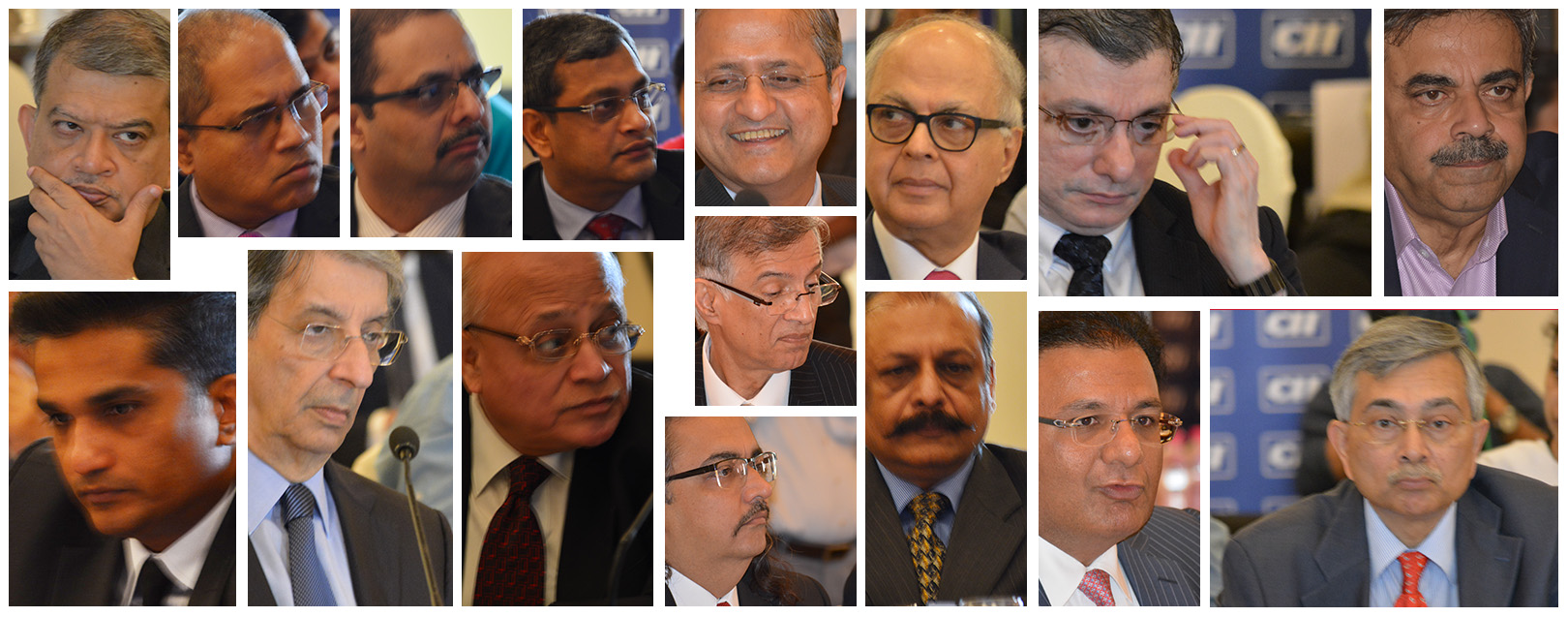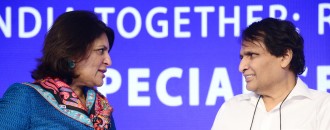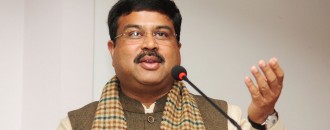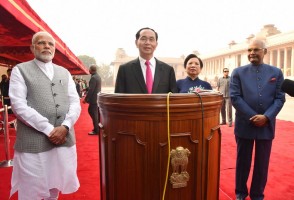
Executives and Industry captains felt the budget was ‘business-as-usual’
The Dollar Business Bureau
Corporate executives and industry captains deliberating at CII’s live budget viewing session at Mumbai had a mixed-feel while watching the budget unfold. When Jaitley came on the giant screen at 11:00, everybody thought he would bring AccheDin, but very few felt it were Achhe Din. Most CEOs chose modesty in acknowledging the budget as one in the “right-earnest” and some even commented that it was “business-as-usual”.
CORPORATE TAXATION
The industry was primarily gung-ho on amends in corporate taxation, improvement in the education sector, affordable housing, exports, tariffs and GST related discussions. But many of these keywords went unaddressed as the FM chose MSME, Agriculture and common man to focus on.
Corporate taxation was anticipated to drop to an 18% figure, a proposal that CII had mooted, but at 25%, the proposal stood as good as un-approved. Gautam Mehra, Tax & Regulatory Services Leader at PriceWaterhouseCoopers opined a few minutes before the session, “UK has decreased it, and the US under President Trump has also resolved to bring it at 25-30%. India following so would help welcome foreign companies.”
K Nandakumar, CII’s Co-Chair on Ease of Doing Business and MD at Chemtrols believed the current corporate tax as good. He added, “I was expecting some more help to MSME since the cost of money is also higher there.”
Sudhir Mehta, CII’s Chairman of Western Region had earlier suggested that the budget could focus on privatisation of 1000 PSUs while also focusing at revitalising projects executed through the PPP mode. Mehta had also suggested that the budget could speak on R&D investments and involve tweaks around the concept of accelerated depreciation to motivate companies to infuse better funds into R&D projects. But not a single point relating to R&D could be gathered from the budget.
NO NEGATIVE SURPRISES
The budget seemed to be an ointment to cure demonetization-linked sufferings. The real state sector which had borne the brunt of demonetization saw the budget as a pillar of hope. In fact, Suketu Shah, Joint Managing Director at Mukand Iron & Steel felt that the budget was good enough to not have any negative surprises. “Off late, we have been hearing many things such as gift tax, capital gains tax etc. (Phew) There have been no negative surprises such as these,” he said.
Niranjan Hiranandani, the Co-Founder and MD at Hiranandani Group saw the budget as a sliver of hope among a global unrest. According to him, the world is already reeling under pressure from Trump, Brexit, and then demonetization. “The budget reinforces a positive confidence.”
Hiranandani suggested that the budget needed expert reviews in the areas of long-term funding and affordable homes. “Good budget for real estate sector. Commercialization of land in Tier 2 airports will help us. India becoming hub for electronics manufacturing would be great too. The sector has been asking this for a long time. Lower taxation would have a better impact and housing-investments will come back,” he added.
Missing Manufacturing & Services
B Thiagarajan of Blue-Star thought that the budget was a great one for agriculture with its emphasis on harvesting and post-processing companies. “The Make in India and Manufacturing sector seems forgotten,” he added.
Sector-heads such as Ashank Desai of Mastek and Ninad Karpe from Aptech appeared unfazed. In fact, Desai quipped that this budget was “business-as-usual”. “Rather than the term ‘digital’, I haven’t heard anything more interesting (for IT service-sector). There were also expectations for startups. There has been nothing specific in terms of IT allocation, although we have been asking 3%. The budget has also missed things such as ITR, R&D. I am also curious to find out what is the elasticity of taxes that has been brought about. A 1.5% deficit does not look clear,” he added.
Karpe, during the start of the budget session, had hinted that R&D and education were important sectors and that there was an immediate need to review policies in the educational sector. Desai felt that the budget had barely passed a 6/10, adding “its an okay budget, nothing negative per se.”
Financial services markets went in for a sea change, as the budget clarified a whole set of policies. Jairaj Purandare, Chairman, JMP Advisors opined that reviews and developments occurred during pre-budget too. “The insolvency code and bankruptcy code, are big game-changers. 10,000 cr has been announced as a recapitalization of Banks but I think, there is a need for more. It will give them a better tax break, and take the overall tax rate from 7.5 to 8.5%, which is a good move.”
Speaking exclusively with The Dollar Business, Purandare added that there was an episode of taxation on FIIs during January that had caused concerns. “The CBDT circulars said that there is not taxing on the indirect transfer route. Now that it has now come into the law, will motivate more FIIs.”
EXPORTS PERSPECTIVE
While the budget has not keyed in on exports as a sector, Sanjeev Agarwal, CEO at Gitanjali Exports thought this was an operational issue than a policy-one. Speaking exclusively to TDB, he pointed out that the major challenge in gold exports was manpower and labour. “There is nothing like a support to the labour industry. It misses the impetus, and there is nothing specifically for exports sector. Overall there is relief that there is no major setback, but again this is a 6/10 budget.”
Khurshed Thanawala, MD at Oerlikon Textile India Pvt Ltd felt that there is a considerable need to create employment and better textile sector. According to him, India has a strong opportunity to replace China as the top exporter of textiles. “We need policies to ensure that we are the top exporter of finished garments, rather than textile fabrics,” he added.
Although any new policy will have its share of upheavals, there is also a need to examine the policy in the background of demonetization, GST, and the overall investment environment. Robin Banerjee, Convenor, Finance and Taxation Panel and MD at Caprihans India, believes this is a 10/10 budget. “This is the best platform the government can offer to speed up the economy, weed out corruption and widen the tax base,” he added.






 to success.
to success.